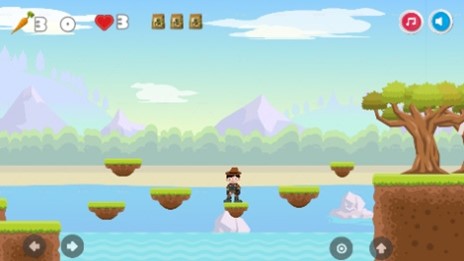Educational Pest Repellent Games Using Catapults
Game Edukasi Pengusir Hama Menggunakan Ketapel
DOI:
https://doi.org/10.21070/joincs.v3i0.720Keywords:
Education Game, Taditional Game, SlingshotsAbstract
Slingshots are also a type of traditional weapon used by ancient people to protect themselves from danger and to hunt small birds. Not only that, slingshot is also a toy of Indonesian children in ancient times. But in this modern era, catapults are rarely played by children and are used by farmers to drive out rice field pests. To be able to preserve the slingshot's traditional weapons, a media update is needed. Even though we don't use and play the slingshot, we can find out how to use it through a medium. Today through digital forms of media such as smartphones can help us so that slingshots can be reused, namely through the form of games on smartphones. This study uses the Research and Development method with addie models (Analysis Design Development Implementation Evaluations) that are appropriate and efficient with the stages in making games. The results obtained are games that are made to be applied to various age groups, especially children. The community responded positively because the games made were positive and could re-introduce traditional games that were developed into more modern games and as a medium of entertainment for the community. So that people will get to know traditional slingshot weapons.
References
S H. Cerdas dengan Game. PT Gramedia Pustaka Utama; 2010.
Putra RC, Dedi Gunawan ST. Pembuatan Game Edukasi Pintar Memilah Sampah Berbasis Android. Universitas Muhammadiyah Surakarta; 2016.
J. F D, Y C, T H. Practical Android 4 Games Development. Apress. 2011.
Damar P, Punto. Bikin Game Tanpa Coding Dengan Construct 2. Yogyakarta: CV. Andi Offset; 2015.
Sugiyono D. Metode Penelitian. Bandung: CV Alvabeta; 2000.
Millington I. Artificial Intelligence for Games. Taylor & Fancis; 2006. 856 p.
Anonim. Adobe Photoshop [Internet]. 2016. Available from: https://id.wikipedia.org/w/index.php?title=Adobe_Photoshop&st able=1
Safaat N. Pemograman aplikasi mobile smartphone dan tablet pc berbasis Android. Bandung: Informatika.; 2012.






